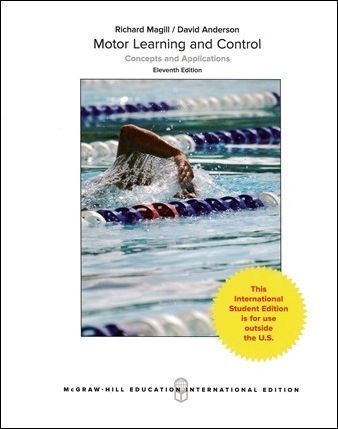書籍分類

Motor Learning and Control: Concepts and Applications 11/e
作者:Richard Magill, David Anderson
原價:NT$ 1,500
內容介紹 本書特色 目錄 作者介紹
- Description
- SmartBook® - an adaptive digital version of the course textbook that personalizes your reading experience based on how well you are learning the content.
- Access to your instructor’s homework assignments, quizzes, syllabus, notes, reminders, and other important files for the course.
- Progress dashboards that quickly show how you are performing on your assignments and tips for improvement.
- The option to purchase (for a small fee) a print version of the book. This binder-ready, loose-leaf version includes free shipping.
Motor Learning and Control: Concepts and Applications provides an introductory study of motor learning and control for students who aspire to become practitioners in exercise science, physical education, and other movement-oriented professions. The text opens with an introduction to motor skills and control, continues through attention, memory, and learning, and ends with a discussion of instruction, feedback, and practice methods. The text's strong research base, clear presentation and practical applications will help students build a solid foundation in motor skills and prepare them for further exploration on their own.
Instructors and students can now access their course content through the Connect digital learning platform by purchasing either standalone Connect access or a bundle of print and Connect access. McGraw-Hill Connect® is a subscription-based learning service accessible online through your personal computer or tablet. Choose this option if your instructor will require Connect to be used in the course. Your subscription to Connect includes the following:
分類位置:
理工 > 復健與運動科學


